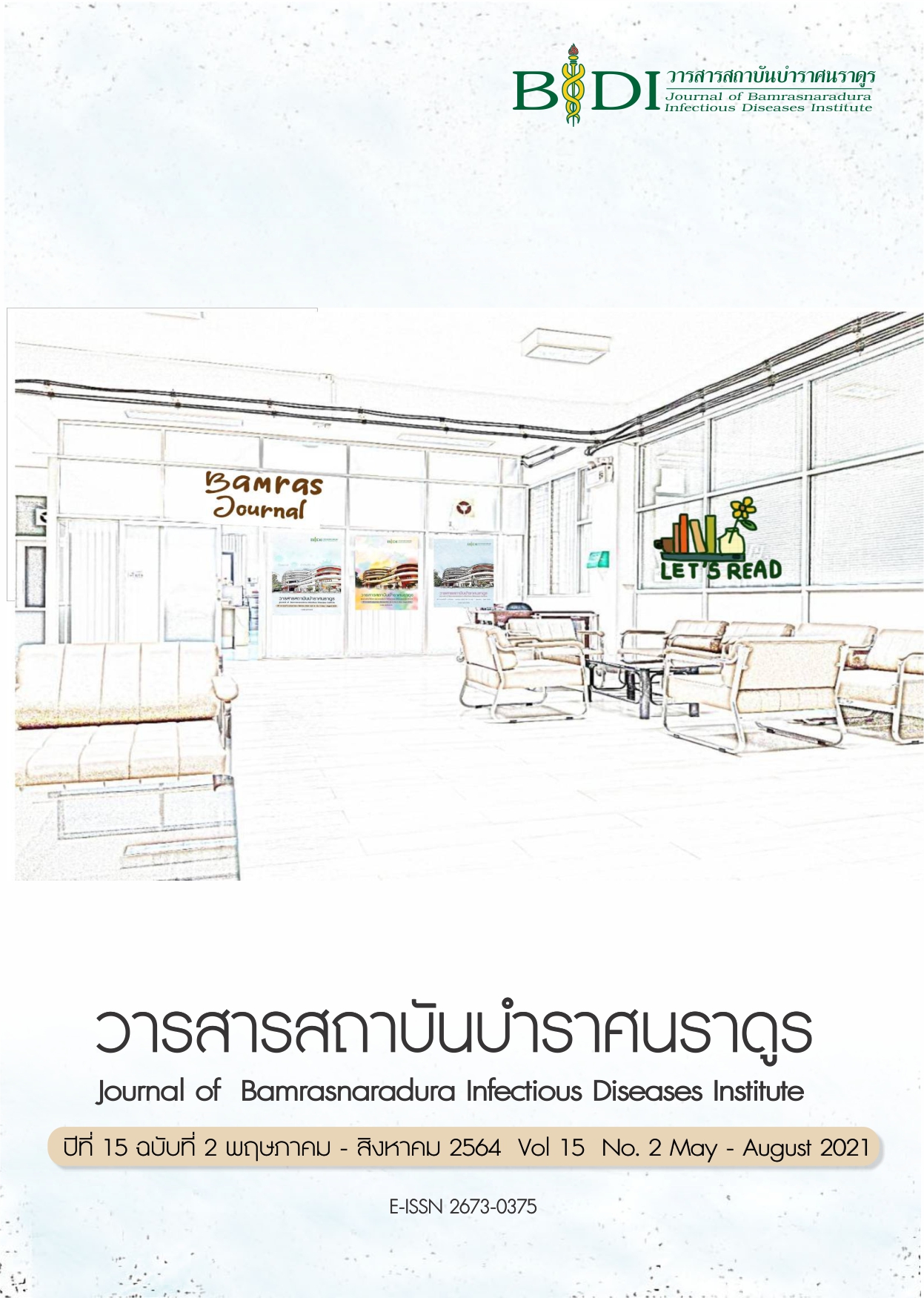สมรรถนะที่พึงประสงค์ของบัณฑิตพยาบาลไทย: มุมมองของผู้มีส่วนได้ส่วนเสียทางการพยาบาล
Main Article Content
บทคัดย่อ
สมรรถนะของบัณฑิตพยาบาลไทยในบริบทที่มีการเปลี่ยนแปลงในมุมมองของผู้มีส่วนได้ส่วนเสียในวิชาชีพพยาบาลยังไม่ชัดเจน งานวิจัยเชิงคุณภาพฉบับนี้มีวัตถุประสงค์เพื่อระบุสมรรถนะของบัณฑิตพยาบาลไทยที่พึงประสงค์ตามมุมมองของผู้มีส่วนได้ส่วนเสียในวิชาชีพพยาบาล และเพื่อเสนอรูปแบบสมรรถนะบัณฑิตพยาบาลไทยในบริบทที่มีการเปลี่ยนแปลง กลุ่มตัวอย่างเป็นผู้มีส่วนได้ส่วนเสียในวิชาชีพพยาบาลจำนวน 25 คน แบ่งเข้ากลุ่มสนทนาแบบ focus group discussion เป็น 3 กลุ่ม ได้แก่ กลุ่ม 1 ผู้บริหารทางการพยาบาล 8 คน และผู้แทนจากสภาการพยาบาล 1 คน กลุ่ม 2 นักศึกษาพยาบาล 8 คน กลุ่ม 3 อาจารย์ 8 คน ตามประเด็นของการสนทนากลุ่มที่ผู้วิจัยสร้างขึ้น วิเคราะห์ข้อมูลโดยใช้การวิเคราะห์เนื้อหาแบบนิรนัยโดยใช้กรอบการวิเคราะห์ที่ค้นคว้าจากการทบทวนวรรณกรรม
ผลการวิจัยพบว่า สมรรถนะที่พึงประสงค์ในบัณฑิตพยาบาลในมุมมองของผู้มีส่วนได้ส่วนเสียเป็นไปในแนวทางเดียวกันตามกรอบมาตรฐานที่กำหนดโดยสภาการพยาบาลแห่งประเทศไทย กรอบมาตรฐานคุณวุฒิระดับอุดมศึกษาแห่งชาติ และทักษะแห่งศตวรรษที่ 21 โดยกลุ่มตัวอย่างได้เน้นย้ำความสำคัญของสมรรถนะที่พึงประสงค์ไว้ 9 ประการ ได้แก่ 1) ความรักและความเมตตากรุณา 2) การคิดเชิงวิพากษ์และสร้างสรรค์ 3) การคิดและแก้ปัญหาเชิงกลยุทธ์ 4) การจัดการกับ ความท้าทาย 5) ภาวะผู้นำ การทำงานเป็นทีมและการจัดการ 6) การวิจัย 7) การสื่อสารที่มีประสิทธิภาพ 8) การใช้เทคโนโลยีสารสนเทศ และ 9) ภูมิปัญญาไทย และมีรูปแบบสมรรถนะที่พึงประสงค์ของบัณฑิตพยาบาลไทยในอนาคตที่ได้พัฒนาขึ้นตามมุมมองของผู้มีส่วนได้ส่วนเสียดังกล่าว สรุปได้ว่าสมรรถนะที่พึงประสงค์ในบัณฑิตพยาบาลไทยในมุมมองของผู้มีส่วนได้ส่วนเสียนั้นมีหลายประการ ควรมีการนำเอามุมมองเหล่านี้มาใช้เป็นข้อมูลเบื้องต้นในการพัฒนาหลักสูตรเพื่อตอบสนองต่อความต้องการด้านสุขภาพที่เปลี่ยนแปลงตามบริบทในอนาคต
Article Details
เอกสารอ้างอิง
References
Brown RA, Crookes PA. What level of competency do experienced nurses expect from a newly graduated registered nurse? Results of an Australian modified Delphi study. BMC Nurs 2016;15:45.
Abhicharttibutra K, Kunaviktikul W, Turale S, Wichaikhum OA, Srisuphan W. Analysis of a government policy to address nursing shortage and nursing education quality. Int Nurs Rev 2017 Mar;64(1):22-32.
Frenk J, Chen L, Bhutta ZA, Cohen J, Crisp N, Evans T, et al. Health professionals for a new century: transforming education to strengthen health systems in an interdependent world. Lancet 2010 Dec 4;376(9756):1923-58.
Sawaengdee K, Kantamaturapoj K, Seneerattanaprayul P, Putthasri W, Suphanchaimat R. Self-assessment of nursing competency among final year nursing students in Thailand: a comparison between public and private nursing institutions. Adv Med Educ Pract 2016;7:475-82.
Liu Y, Aungsuroch Y. Current Literature Review of Registered Nurses' Competency in the Global Community. J Nurs Scholarsh 2018 Mar;50(2):191-9.
Benner P. Educating nurses: a call for radical transformation-how far have we come? J Nurs Educ 2012 Apr;51(4):183-4.
Elo S, Kyngas H. The qualitative content analysis process. J Adv Nurs 2008 Apr;62(1):107-15.
Sawaengdee K, Tangcharoensathien V, Theerawit T, Thungjaroenkul P, Thinkhamrop W, Prathumkam P, et al. Thai nurse cohort study: cohort profiles and key findings. BMC Nurs 2016;15:10.
Long DA, Young J, Rickard CM, Mitchell ML. Analysing the role of the PICU nurse to guide education of new graduate nurses. Nurse Educ Today 2013 Apr;33(4):388-95.
Waite R, McKinney NS. Capital We Must Develop: Emotional Competence Educating Pre-Licensure Nursing Students. Nurs Educ Perspect 2016 Mar;37(2):101-3.
Michelangelo L. The overall impact of emotional intelligence on nursing students and nursing. Asia Pac J Oncol Nurs 2015 Apr;2(2):118-24.
Dunworth M, Kirwan P. Do nurses and social workers have different values? An exploratory study of the care for older people. J Interprof Care 2012 May;26(3):226-31.
Choe K, Song E, Kang Y. Recognizing bioethical issues and ethical qualification in nursing students and faculty in South Korea. Nurs Ethics 2013 Mar;20(2):213-25.
Wilson SC, Carryer J. Emotional competence and nursing education: a New Zealand study. Nurs Prax N Z 2008 Mar;24(1):36-47.
Pena A. The Dreyfus model of clinical problem-solving skills acquisition: a critical perspective. Med Educ Online 2010 Jun 14;15.
Kopf RS, Watts PI, Meyer ES, Moss JA. A Competency-Based Curriculum for Critical Care Nurse Practitioners' Transition to Practice. Am J Crit Care 2018 Sep;27(5):398-406.
Chen SH, Chen SC, Lee SC, Chang YL, Yeh KY. Impact of interactive situated and simulated teaching program on novice nursing practitioners' clinical competence, confidence, and stress. Nurse Educ Today 2017 Aug;55:11-6.
Konttila J, Siira H, Kyngas H, Lahtinen M, Elo S, Kaariainen M, et al. Healthcare professionals' competence in digitalisation: A systematic review. J Clin Nurs 2019 Mar;28(5-6):745-61.
Booth TL, Emerson CJ, Hackney MG, Souter S. Preparation of academic nurse educators. Nurse Educ Pract 2016 Jul;19:54-7.
Rahmati SN, Alami A, Khosravan S, Mansoorian MR, Ekrami A. Academic training and clinical placement problems to achieve nursing competency. J Adv Med Educ Prof 2015 Jan;3(1):15-20.
Sawaengdee K, Pudpong N, Wisaijohn T, Suphanchaimat R, Putthasri W, Lagarde M, et al. Factors associated with the choice of public health service among nursing students in Thailand. BMC Nurs 2017;16:8.
Thinkhamrop W, Sawaengdee K, Tangcharoensathien V, Theerawit T, Laohasiriwong W, Saengsuwan J, et al. Burden of musculoskeletal disorders among registered nurses: evidence from the Thai nurse cohort study. BMC Nurs 2017;16:68.
Jack K, Hamshire C, Harris WE, Langan M, Barrett N, Wibberley C. "My mentor didn't speak to me for the first four weeks": Perceived Unfairness experienced by nursing students in clinical practice settings. J Clin Nurs 2018 Mar;27(5-6):929-38.
Matchim Y, Raetong P. Thai nursing students' experiences of caring for patients at the end of life: a phenomenological study. Int J Palliat Nurs 2018 May;24(5):220-9.
Witthayapipopsakul W, Cetthakrikul N, Suphanchaimat R, Noree T, Sawaengdee K. Equity of health workforce distribution in Thailand: an implication of concentration index. Risk Manag Healthc Policy 2019;12:13-22.


